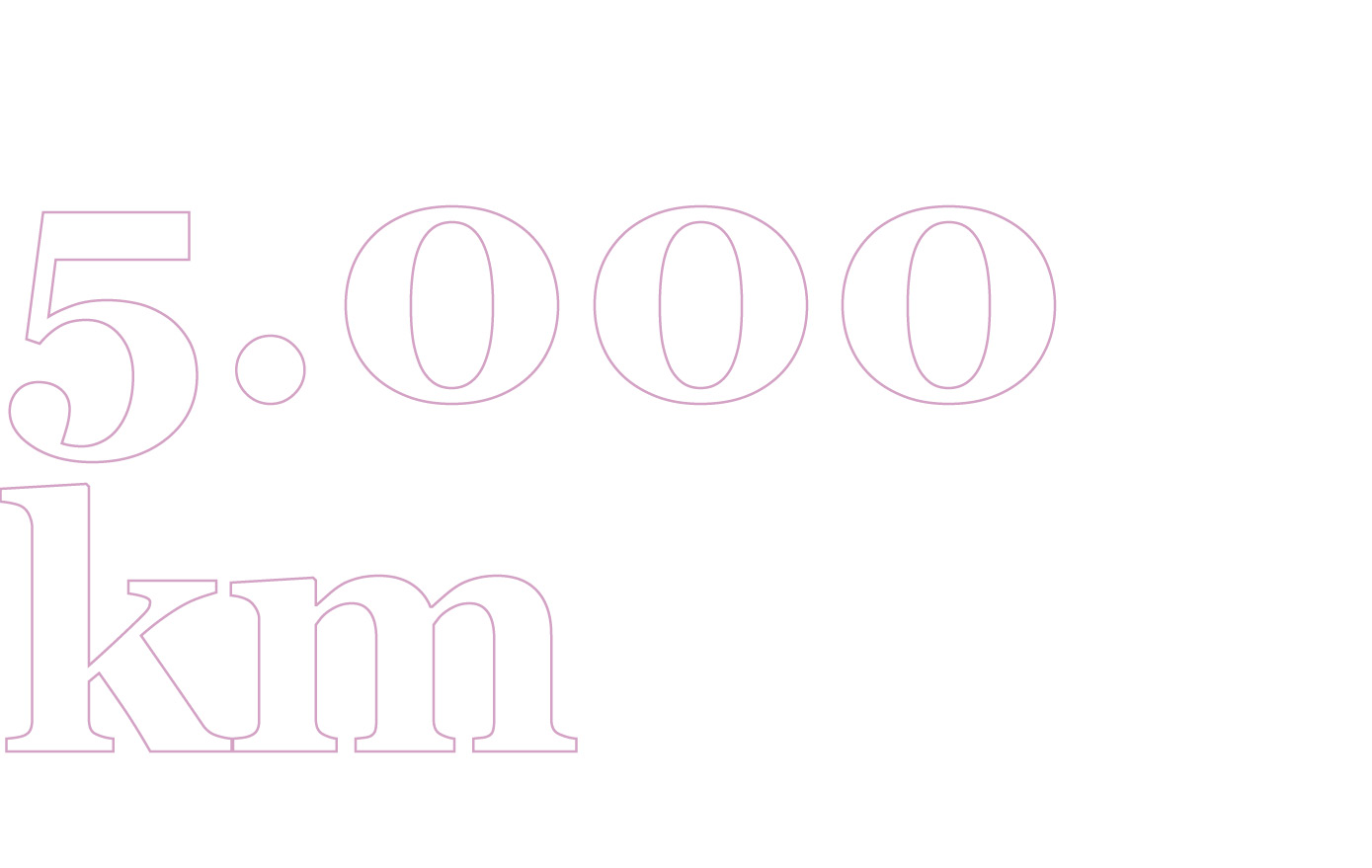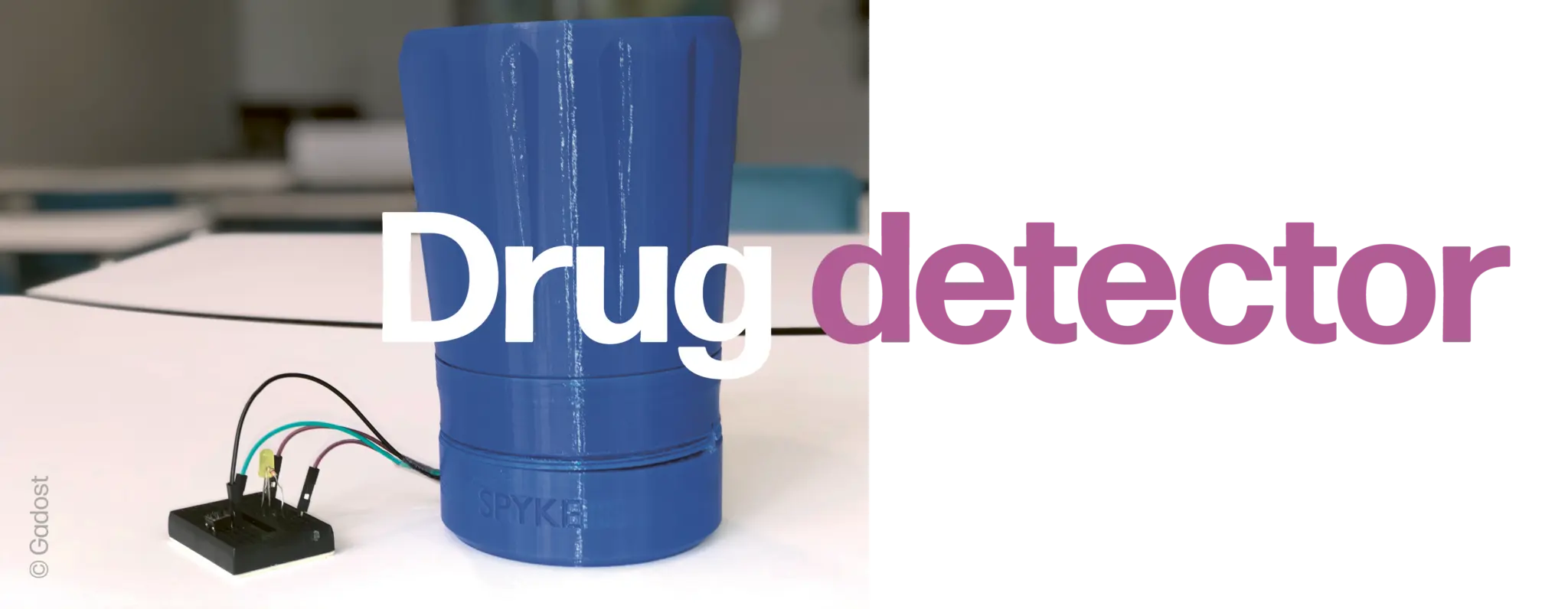Kort Delfts
A CALL TO REASON
Since June, Marileen Dogterom, Professor of Biophysics, has combined her work at TU Delft with the presidency of the Royal Netherlands Academy of Arts and Sciences (KNAW). As science is increasingly being criticised and threatened, she issues a call to reason (read her interview using the QR code). On the credibility of science, she says: “If news doesn’t suit people, they tend to shoot the messenger. You can always find another scientist willing to say something more to your liking.”
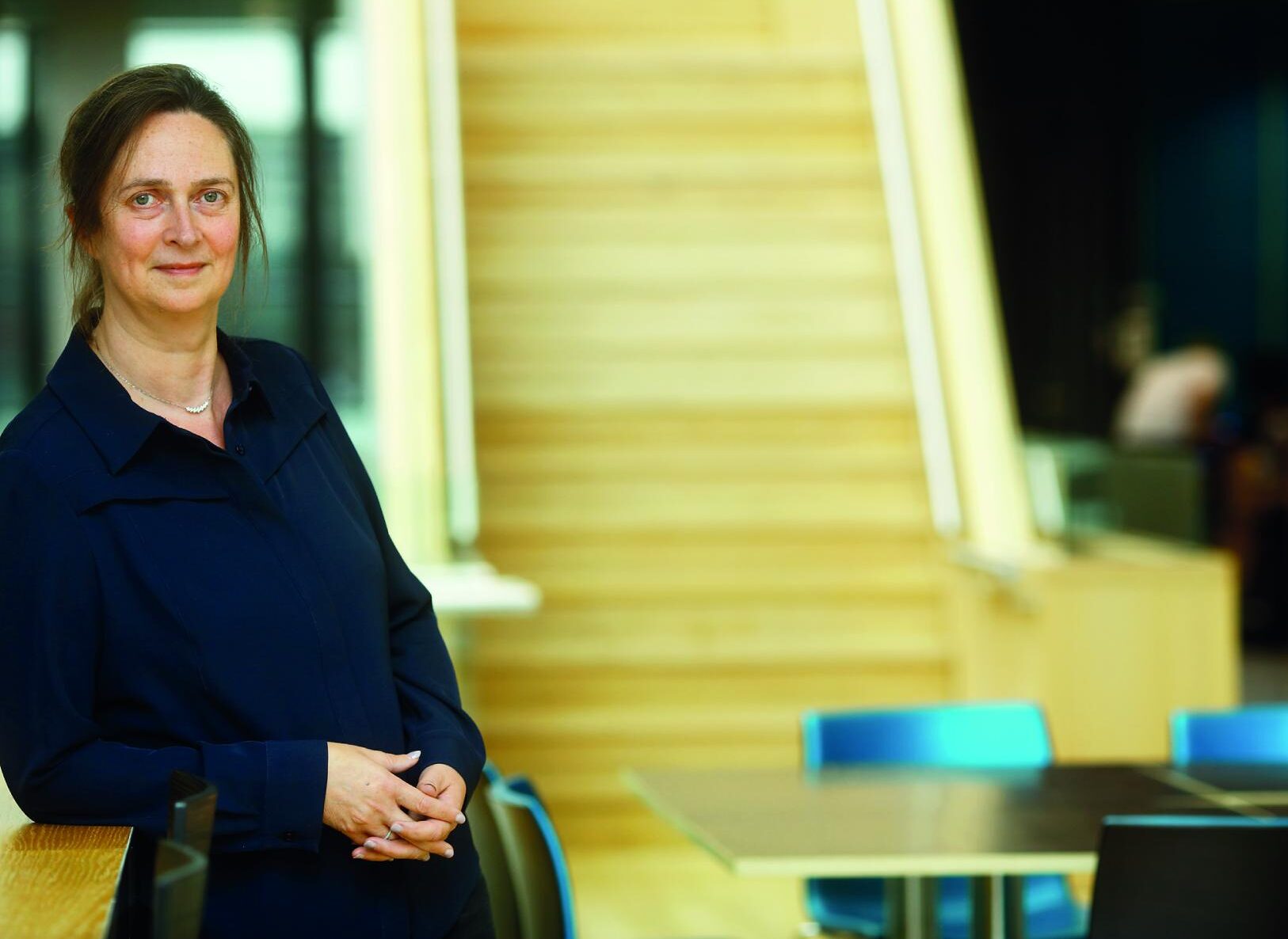
© Sam Rentmeester
In September, Kees Vuik, Professor of Numerical Analysis and High-performance Computing at the Faculty of EEMCS, was named Best Professor. The prize is awarded annually by the TU Delft University Fund to a professor who excels in teaching and research. Vuik is delighted. “It’s an important award that has quite a reputation at TU Delft and across the country.” He has five tips on effective teaching, including ‘See the person behind the student’ and ‘Continue to innovate’.
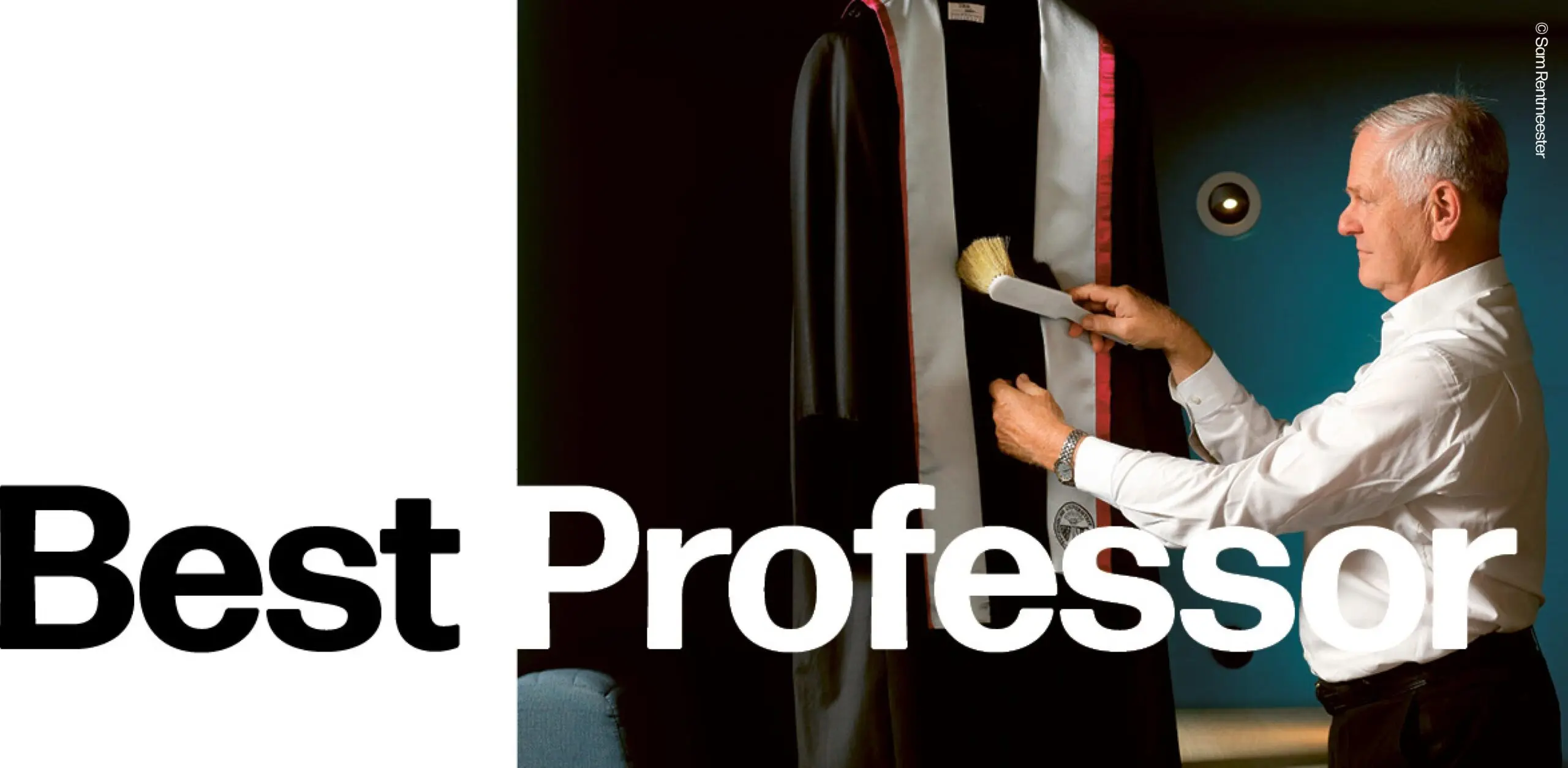
@Sam Rentmeester
Hollandkering
Under the title Strong Together, TU Delft, HKV Lijn in Water and RoyalHaskoning DHV are presenting a new plan to protect the south-west of the Netherlands from rising sea levels. The conventional approach would mean significant dyke reinforcements for the whole area from Biesbosch to Hook of Holland. For a 50 cm rise in sea level, that would cost approximately EUR 3 billion. Their alternative is a second storm surge barrier, Hollandkering, to be built in front of the existing Maeslantkering at Hook of Holland. This barrier also requires three super pumping stations in Oude Maas, Nieuwe Maas and Haringvliet to discharge river water. The plan would avoid the need for Rotterdam to have higher sea dykes.
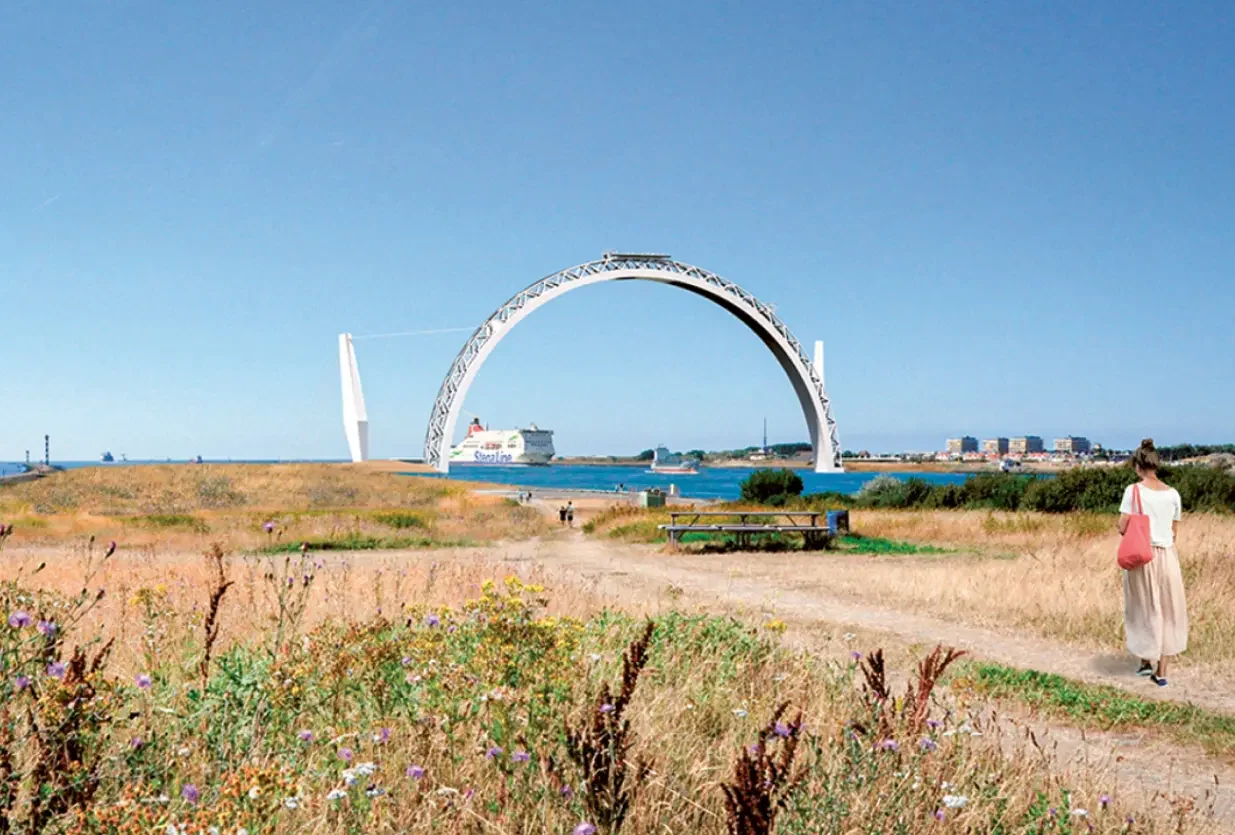
@Ties Rijcken en Koen Meijman
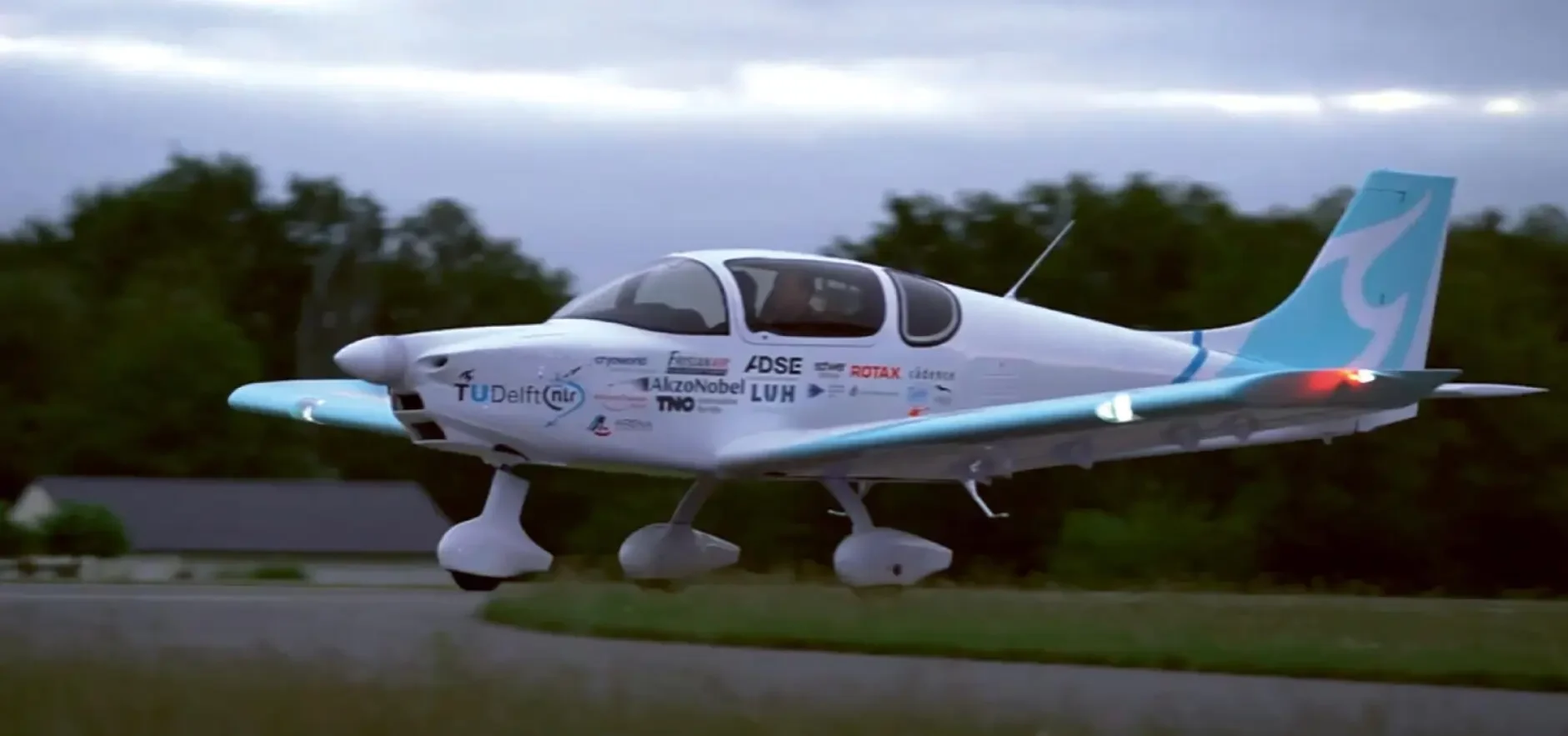
Rain radar for campus
RainGuRu is the only rain radar with a special button for the TU Delft campus. Click on Prometheus’ flame and you will see the rain forecast for the campus for the next 90 minutes. Four Computer Science bachelor’s students developed the app. AI can improve the forecasting of heavy summer downpours not detected by the standard rain radar. The project was supported by the TU Delft Safety & Security Institute.
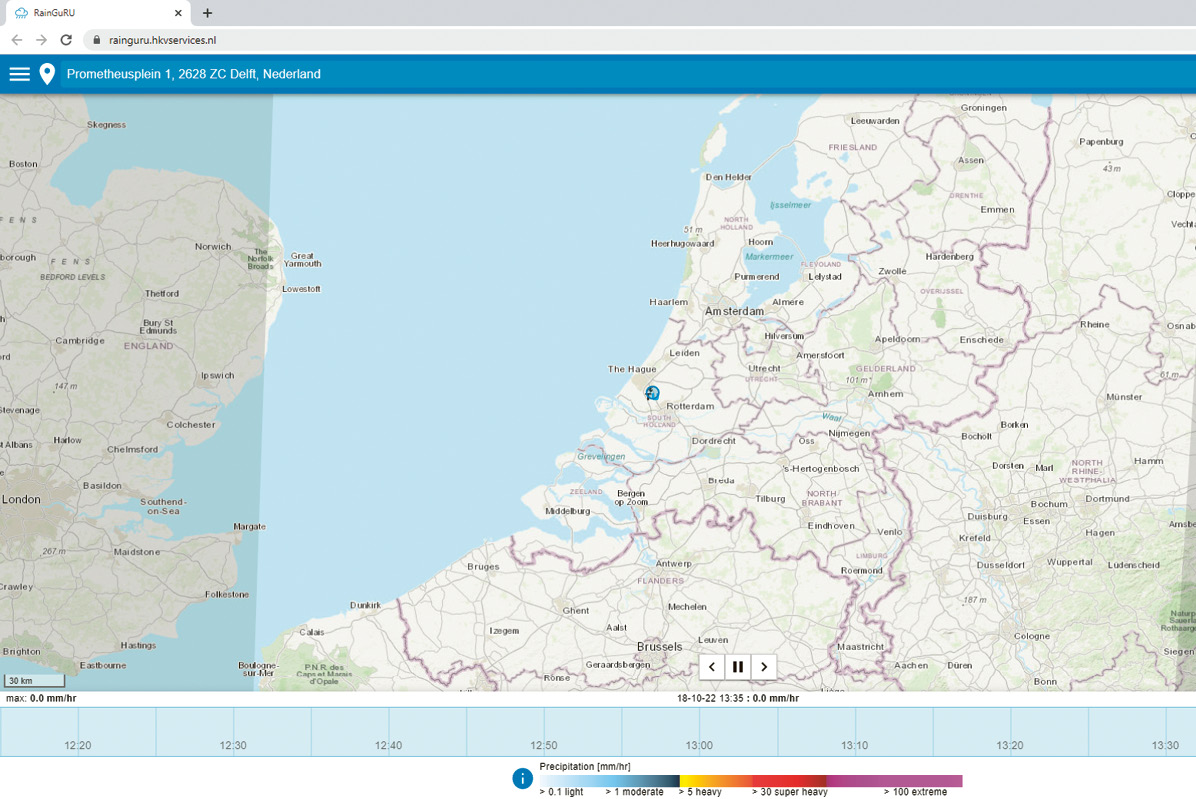
QUANTUM TRANSPORT
Emeritus Professor Hans Mooi has written a book about the history of the TU Delft Quantum Transport group. It played an instrumental role in achieving TU Delft’s leading position as a research centre in nanosciences and quantum information technology. Mooij worked at TU Delft from 1971 until retiring in 2006.
He was the first Director of the Kavli Institute for Nanosciences and was awarded the Pieter Langerhuizen lifetime award in 2020. The book, entitled QT the story of a research group at the origin of nano and quantum science in Delft 1971-2013 can be downloaded and ordered at qutech.nl/hansmooij.
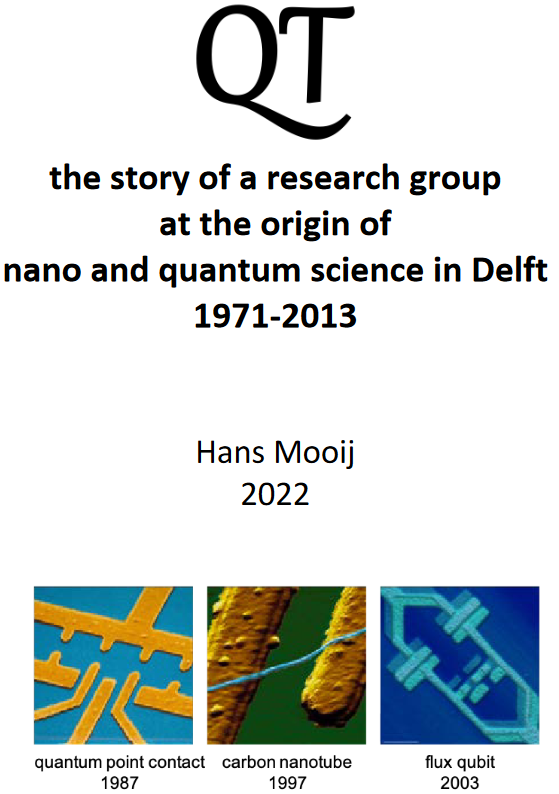
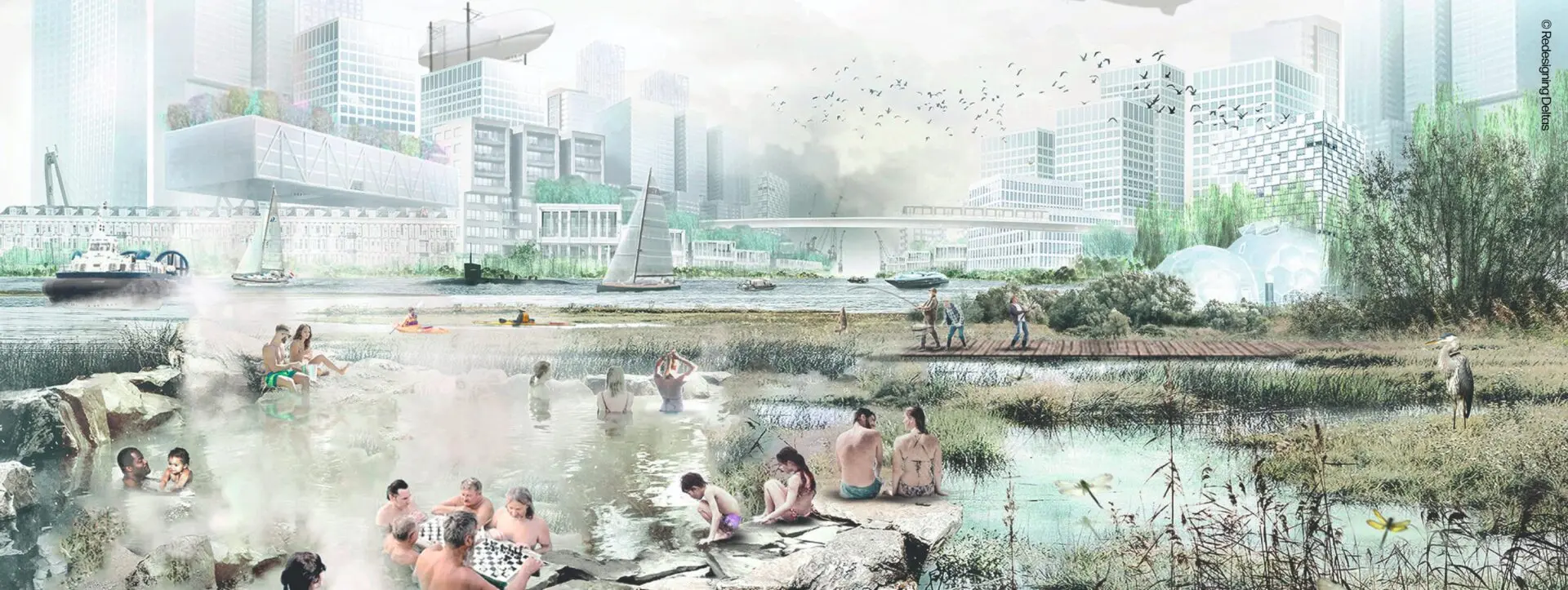
Dutch Delta
OF THE FUTURE
What will the Dutch delta be like in a century? Should we give the rivers and sea free rein? Ask people to live elsewhere? As part of the Redesigning Deltas movement, researchers from different universities and institutes are creating five innovative designs for five regions in the Netherlands. Their visions take account of housing, freshwater supplies, energy generation, infrastructural adaptations, ecological and economic consequences. The approach aims to encourage long-term planning. View the five designs here:
Student numbers set to grow to
40,000
students
To meet the ‘screaming demand for engineers’, TU Delft has ambitious growth plans to reach 40,000 students. It marks a shift from the previous strategy of managing student numbers. The Executive Board is following the advice of a committee that it commissioned to explore future scenarios. TU Delft does not plan to achieve the growth in Delft, but in The Hague and Rotterdam. The Executive Board is currently consulting internal and external stakeholders.
Eight students from the TU Delft iGEM team are developing a detector that can identify the drug GHB. iGEM is an annual global event where students use synthetic cells or components to resolve societal problems. “We’ve demonstrated the working principle,” explains team member Jessica Jekel. “We’re able to convert the biochemical reaction – the bonding to a GHB-like molecule – into an electric signal.” It currently still requires a lab table full of equipment, but it is hoped that the detector will ultimately be smaller than a USB stick.
FLOW TUNNEL
According to researcher Cornel Thill, the new multiphase flow tunnel in the Faculty of 3mE is unique in Europe. It is made of super duplex stainless steel, making it suitable for both fresh and saltwater. Featuring a lot of external ribbing and thick steel sheeting, the structure is also extremely sturdy, enabling it to operate both under pressure and at an overpressure of two bars while limiting deformation to no more than 0.4%. The structure takes up three floors. It is intended for research into cavitation and air lubrication.
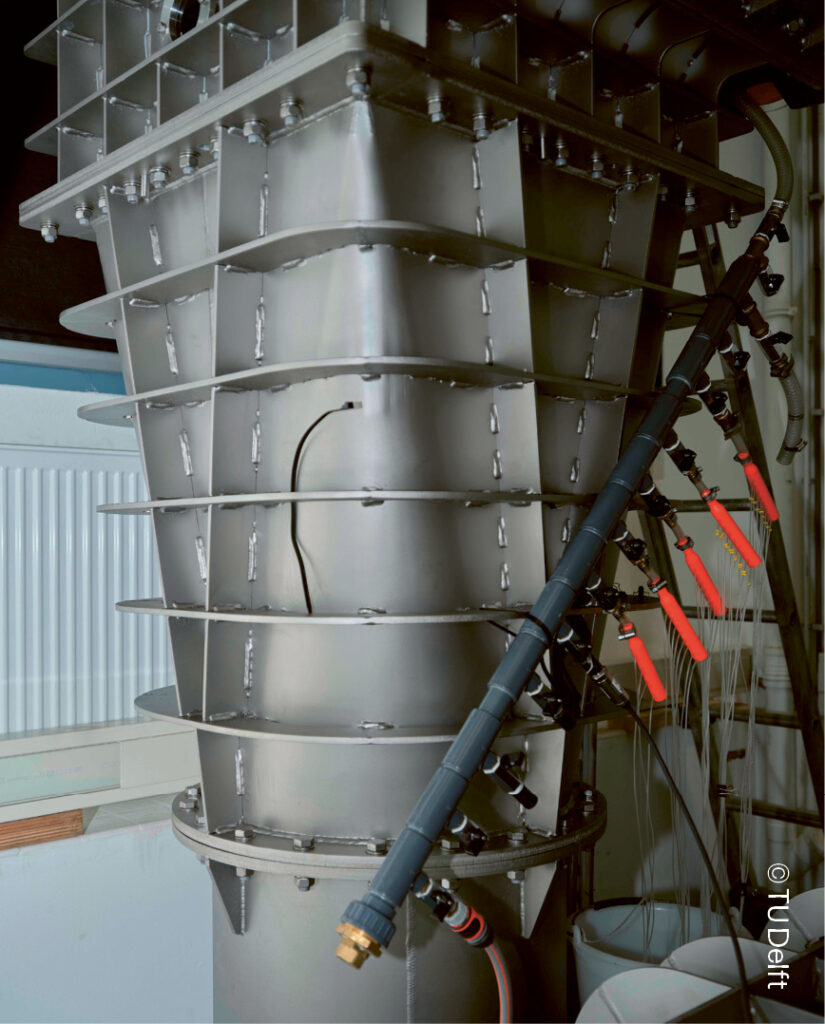
Studentenwoningen
Next year, student housing provider Duwo hopes to build 660 student flats on the southern part of campus. They are intended to last no more than 15 years. Some are being built according to the Sting concept, which has a communal area linked to several student flats. It has two advantages: students can still live together and Duwo can still build flats for single people that fit the rental subsidy regulations.
TU CELEBRATES
connection
On 5 September, first year students, professors in gowns, staff and VIPs came together in the Aula for the traditional opening of the academic year. In his address, Vice Rector Magnificus Rob Mudde emphasised TU Delft’s long history and strong foundations. Much has changed over time, but the ‘can-do’ mentality to tackle problems and make the world a better place remains the same, he said. The main theme was the lifelong connection that TU Delft aims to foster with its students and alumni.
@Ties Rijcken en Koen Meijman
Ocean rowing
TU Delft alumni and former Laga members Ingeborg Dijkstra and Guus Koppes plan to row across the Atlantic Ocean in December. Their journey, almost 5,000 km, goes from the Canary Island of La Gomera to Antigua in the Caribbean. Team NEDurance, which also has two other members, is collecting money for The Ocean Cleanup, a not-for-profit organisation that develops and upscales technologies to rid the world’s oceans of plastic. Want to know more about the race? Scan the QR code on top left.
